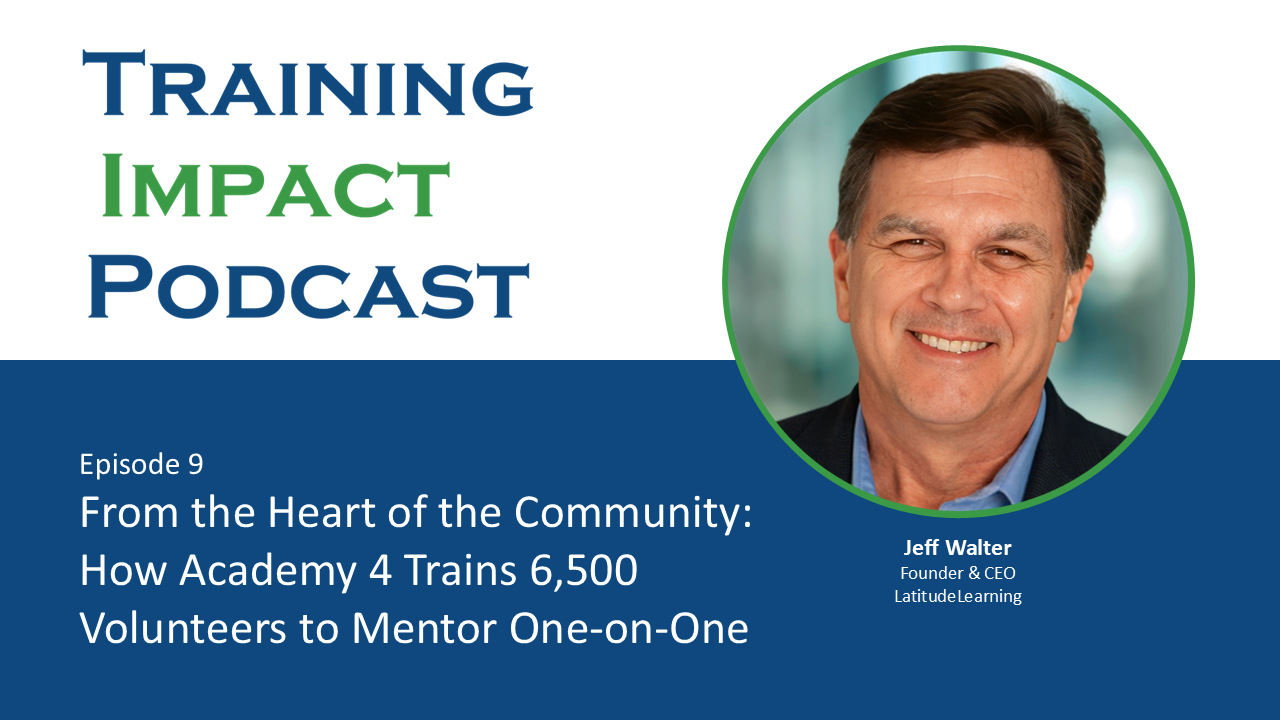Founded in 2012 in Fort Worth, Texas, Academy 4 is a nonprofit organization with a bold and beautifully simple mission: changing lives through relationships. At the heart of their model is a unique mentorship program that pairs every fourth grader in a Title I school with a one-on-one mentor from the local community. What began with a single church and one elementary school has now scaled to over 60 schools and more than 6,500 volunteer mentors.
By connecting churches and community members to local schools, Academy 4 doesn’t just offer mentorship—it creates lasting bridges within neighborhoods, empowering schools, students, and volunteers alike.

The training program at Academy 4 enables thousands of diverse volunteers to engage in safe, meaningful mentoring relationships. It fosters consistency across 60+ school sites, instills confidence in mentors, and ensures child safety protocols are met.
Importantly, the training supports long-term community involvement. Many mentors go beyond their original commitment—launching clothing drives, food donations, and support initiatives based on what they observe in the schools. This ripple effect is the byproduct of a training model designed not just to instruct, but to empower volunteers as active participants in the education ecosystem.
Academy 4 serves three primary groups through its training programs:
Additionally, a smaller-scale fifth-grade program, Leaders V, trains former mentees to become mentors to younger students. A third initiative, 4Families, offers parent engagement programs led by trained church members.
Each learner group requires a distinct training focus. Volunteer mentors need to understand the organization’s mission, logistical expectations, and, critically, child safety rules. High school mentors need more guidance in interpersonal communication and professional conduct, while facilitators must grasp program coordination, mentor recruitment, and school logistics.
All learners are introduced to the mentoring structure: nine sessions per school year, each 90 minutes long, combining leadership curriculum and unstructured game time. Volunteers are expected to follow strict boundaries regarding technology use and facility policies—such as refraining from cell phone use during mentoring and adhering to restroom safety protocols.
The largest challenge Academy 4 faces is the wide range of comfort levels with technology—especially among older volunteers. Although the course content is intentionally simple, accessing the LMS and completing an online module can feel daunting to those unfamiliar with digital platforms.
Initially, technical support required significant hand-holding. Fortunately, volunteers have become more tech-savvy over time, and the program continues to offer clear communication and help resources when needed.
Recruitment is another ongoing challenge. Since each school requires a mentor for every fourth grader, finding enough qualified and available volunteers—especially in schools with over 100 students—requires coordinated efforts between churches, businesses, schools, and local organizations.
Academy 4’s training program aligns with Stage 2 of the Training Program Roadmap—Knowledge Acquisition. At this stage, training is organized, tracked, and aligned with organizational policies, with a strong emphasis on compliance and standardization.
Key best practices include:
The training doesn’t overwhelm volunteers with excess detail—instead, it reinforces the essentials and allows them to focus on building relationships.
Volunteers are assigned user profiles within LatitudeLearning and grouped by program (Academy 4, Leaders V, or Four Families). Each school and program has designated site coordinators who manage volunteer recruitment and logistics.
Each program has its own streamlined course. “Academy 4 Basics” serves as the primary training module, with separate versions for Leaders V and 4Families. Content is organized into three focus areas: organizational mission, program logistics, and child safety.
The course is created using Articulate Rise to ensure a clean, mobile-responsive experience. Volunteers can complete the training on smartphones, tablets, or laptops, and the scroll-based design mimics a webpage, making it intuitive even for less tech-savvy users.
Susan Demers, Academy 4’s L&D Manager, builds and updates training content herself. While Articulate Storyline offers deeper customization, she prefers Rise for its speed and simplicity. The core course content remains largely consistent year to year, with light updates to keep material fresh.
Volunteer users are added to the LMS before the school year begins. Access is granted based on their assigned program and location, ensuring learners only see the courses relevant to their role.
Courses are assigned annually, and volunteers are required to retake them each year—ensuring up-to-date compliance and consistent onboarding for both new and returning participants.
LatitudeLearning allows administrators to monitor completion rates and confirm that each volunteer has agreed to key safety policies. This tracking is crucial in maintaining compliance records for legal and operational peace of mind.
The true incentive at Academy 4 isn’t badges or points—it’s the experience itself. Mentors are often deeply moved by the relationships they form and the impact they witness. However, some recognition practices include newsletters, volunteer spotlights, and community celebrations to reinforce participation and appreciation.
Future improvements include major course updates and expanding AI usage. Demers has plans to revise the “Academy 4 Basics” course to include more interactivity and fresh visuals. The team also plans to explore using chatbots to assist volunteers or simulate mentoring conversations.
Success is measured qualitatively through feedback from teachers and mentors and quantitatively via training completion data. Teacher testimonials about students’ growth and engagement provide some of the most compelling evidence of impact. Additionally, the number of returning volunteers year-over-year signals satisfaction and program effectiveness.
Academy 4’s training program offers a compelling model for how nonprofits can scale mission-driven learning across a massive volunteer base. With thoughtful program design, accessible eLearning, and a strong organizational mission, Academy 4 proves that even the simplest training—when done right—can change lives at scale.
Visit Academy 4 at academy4.org